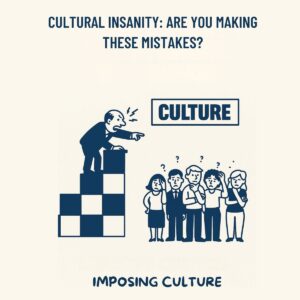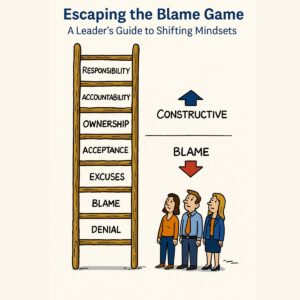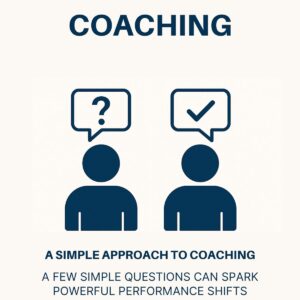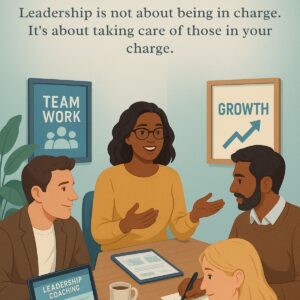Team Focus CEO Ross Judd share his insights into Australian leadership and optimism. Ross Judd is the author of “Cultural Insanity.”
Victor Perton: Ross, thinking about your life’s journey, who are the people who have inspired you?
Ross Judd: Stephen Covey and the 7 Habits of Highly Effective People. I have found the ideas and concepts he summarised in his book have helped shape who I am and how I approach life.
The other people that have inspired me are outspoken and challenging participants in Leadership Development Programs. They’ve helped shape my thinking and made me develop a better understanding of the principles and concepts I love to present.
VP: Ross, what’s your favourite story of a leader or boss you have worked with?
Ross Judd: When I was in retail, I had a boss called Nigel, whose passion, enthusiasm, and motivation was infectious. He loved the retail environment. Serving customers, outselling competitors, it was all “fun” to him. He taught me the value of seeing the “fun” in everything you do. He also taught me that if you love what you are doing the success will follow.
VP: Ross, what are the unique qualities of Australian leadership?
Ross Judd: Australians tend to be very egalitarian, which, as a general rule, leads to an informal and personal leadership style. Leaders tend to see themselves as an “equal” and are almost embarrassed when they need to correct behaviour, hold people to account, or give specific instructions. It leads to an unfortunate habit of letting things slide because the leader would prefer to stay a “friend” instead of being seen as an authority figure.
VP: Ross, what do Australians want of their leaders today?
Ross Judd: Australians are very relationship-based and subsequently want a good relationship with their leader. They want their leader to get to know them on a personal level and show interest in their development, career opportunities, and well being.
VP: What makes you optimistic? Ross, what’s the case for optimism?
Ross Judd: The next generation is very focussed on adding value and leaving the world a better place. It spills into their attitudes on global warming, employment, and so many areas. They will purchase from ethical companies and stores and communicate their concerns through social media. It’s fantastic and makes me very optimistic about the potential for the future. People are learning to care about how they spend their money and how the companies they deal with behave. It’ a great time to be in business.
VP: Ross, the evidence shows that optimism is the underpinning of good strategy. Would you share your insights into the relationship between optimism and good strategy?
Ross Judd: I am continually working with how attitudes and behaviours shape culture. The truth is that our individual attitudes and behaviours shape our reality. If you see things, and build your strategy, from an optimistic perspective, then you will build attitudes and behaviours that will create that reality. If you look for opportunity, you will see opportunity. If you look for threats, you will see threats and behave defensively. To be successful, a strategy needs to look for opportunity.
Ross Judd is the author of “Cultural Insanity.”






